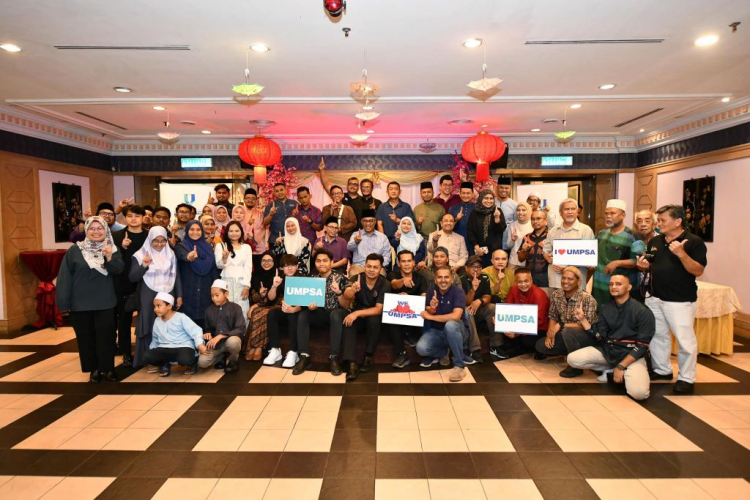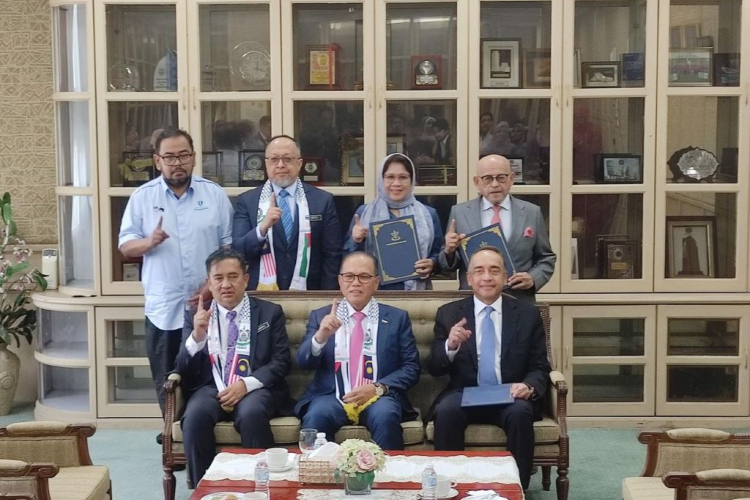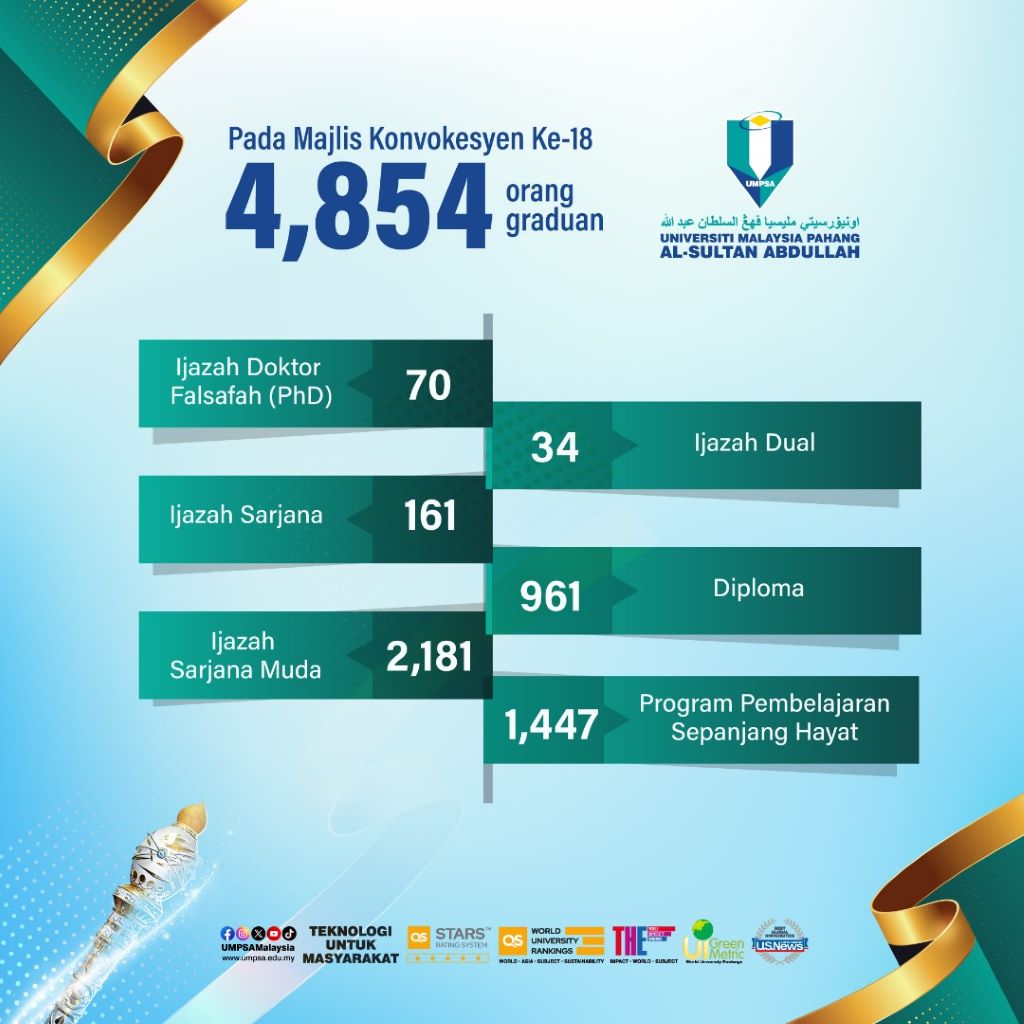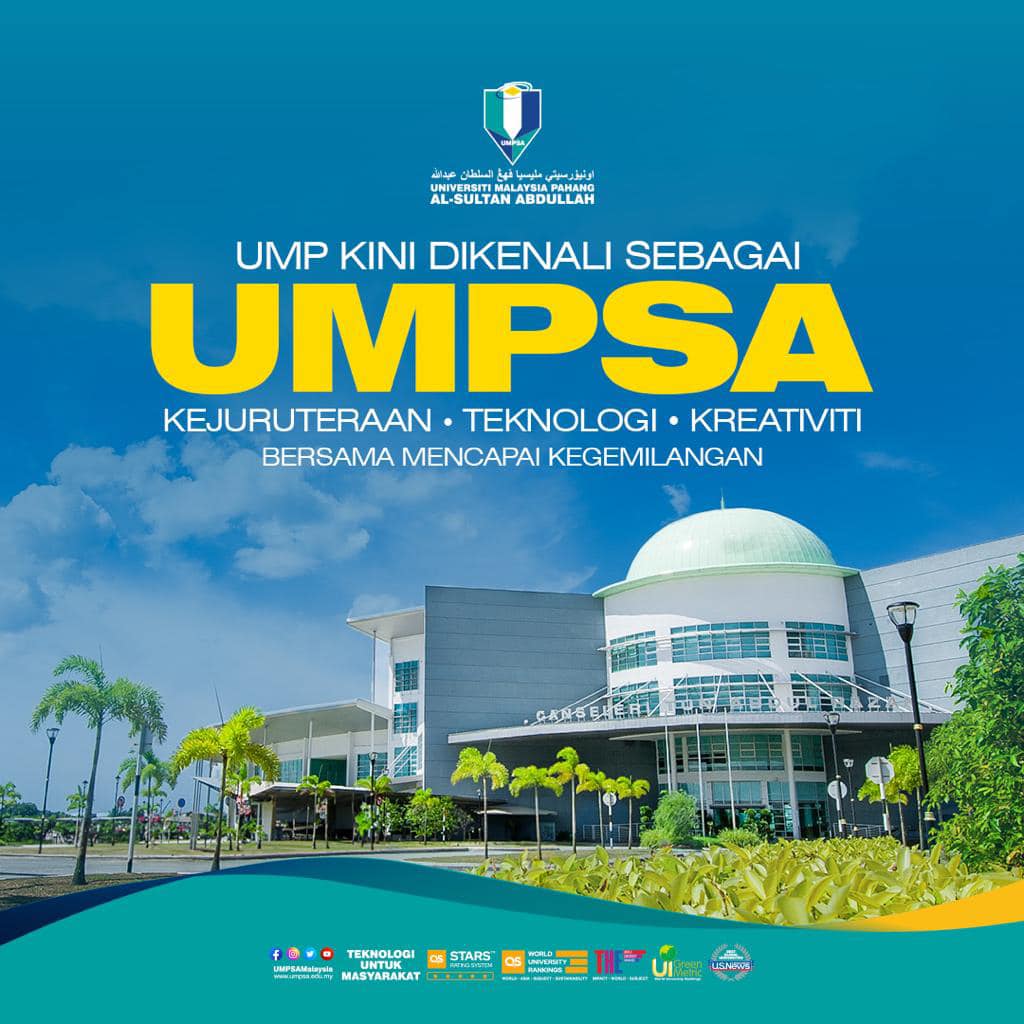Leadership and Leading by Example: Navigating The Shadow of Silent Bullying
The issue of workplace bullying appears to be gaining traction in the public discourse. In this regard, higher education institutions are not an exception. A majority of those who have been subjected to bullying in academia have not reported the behaviour to their institutions for fear of retaliation. In the majority of cases, intimidation was condoned by a superior, such as the dean of the faculty, staff holding senior positions, or junior staff holding power positions.
A leader should lead by example and embody the values and attitudes of the organisation; however, this is not always the case. Their failure lies in the fact that they are the ones who commit such acts and do not make any serious efforts to address these issues. This behaviour contradicts what is expected of them and makes them perceived as enablers of a toxic workplace. This sends a message to all employees that such behaviour is accepted and tolerated.
As a result, employees are not motivated or inspired to be their best selves. This creates an environment of mistrust and hostility which will inevitably lead to poorer work performance. Leaders in academic institutions should set a positive example and demonstrate that bullying and other forms of intimidation will not be tolerated. There are numerous instances of academic bullying committed by faculty members or the perpetrators towards their peers that manifest in various ways.
Stealing credit: Authorship positions are inappropriately changed, or credit is taken for ideas or intellectual property for own benefit. A person who has been bullied feels undervalued as a result of their ideas or hard work being taken advantage of.
Spreading rumours: Falsely portraying someone in a hostile manner to create a hostile environment. As a result, the individual may feel isolated and targeted, which can be detrimental to their reputation as well as psychologically damaging to them.
Withholding information: The deliberate withholding of crucial information could help an individual succeed in their role. An individual may be prevented from performing to his or her full potential as a result of this type of sabotage.
Micromanagement: An excessive amount of control over someone’s work can undermine their confidence. When someone is micromanaged, they are not given the autonomy or freedom to do their work how they best see fit.
Ignoring: Excluding and isolating their viewpoints in a manner that creates feelings of inferiority and impedes motivation. This can cause alienation and a breakdown in communication where a feeling of distrust and hostility arises. Frequently cutting off the victim’s words by the perpetrator can have a damaging effect on the victim’s professional development.
Subtle Put-Downs: Belittling someone’s abilities or contributions through subtle language or tone. Some use justification to ‘help the people grow and improve’. This pretext is harmful when used as a basis for validating the bully’s behaviour.
There are many demoralising and hurtful actions committed by the perpetrators; however, as academicians, they should be more cautious in their words, humanistic in their actions, and mindful of their behaviour. A position of power in academia serves a significant mission in the promotion of a respectful and growth-oriented culture as opposed to acting in a silent manner as a bully.
A serious response to the bullying issue should be pursued by the management in academia before it escalates severely. There will be many consequences and losses if these issues are not addressed and mitigated. This will result in substantial losses if the academician who has been bullied is preserved as their self-protective behaviour, which leads to the development of silent codes. Having a silent bully, a silent response, and a silent code conflict with the nature of a higher education institution, which should be open and collaborative. In the role of leader, it is a delicate matter to strike a balance between encouraging subordinate excellence and playing with the perception of pushing subordinates.
In order to achieve this balance, it is essential to establish a trusting and collaborative relationship that is based on empathy and open communication. In Malaysian academic settings, particularly in higher education institutions, academic bullying legislation is rarely found, and it is imperative that such legislation be enacted through the promotion of more research and open discussion.
The scarcity of the research, as evidenced by the Scopus Search
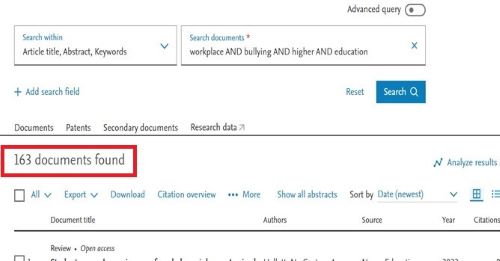
The scarcity of the research, as evidenced by the Web of Science Search
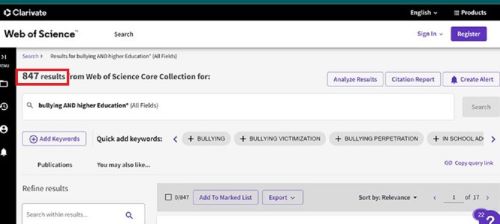

The writer is a Senior Lecturer at the Centre for Human Sciences, Universiti Malaysia Pahang Al-Sultan Abdullah (UMPSA)
E-mail: hadijah@ump.edu.my





